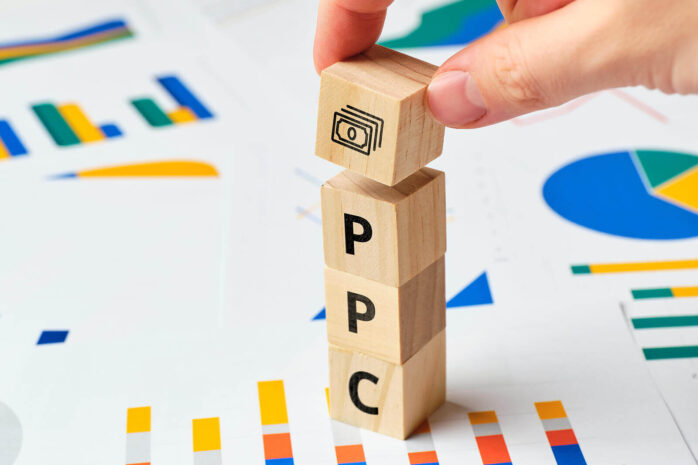
Running a successful PPC campaign takes a lot of hard work, dedication, and knowledge. At the same time, it’s one of the easiest ways to increase the number of conversions, with more than a 200% ROI on average. In addition, it’s also one of the fastest ways to lose money if you’re not sure what you’re doing or if you’re making the same common mistakes that most people make.
In this article, we’ll cover what the most common mistakes look like, how you can ensure you’re not making these mistakes, and how to adjust your strategy so that your PPC campaign will work better for you.
1. Targeting The Wrong Audience

According to DigitalAuthorityPartners, one of the most common PPC mistakes people make with their PPC campaigns is targeting the wrong audience. As a result, this can mean targeting a different audience than you intended or targeting too broadly and not being specific enough with your keywords and ads.
When you’re targeting the wrong audience, you might not be getting as many conversions as you could or getting irrelevant conversions to your business. To target the right audience, you need to know who your ideal customer and their search topics.
For example, if you’re a pet store, your target audience may be someone who needs pet supplies for their animal. However, suppose you’re targeting people looking for information about pets. In that case, you might not be getting as many conversions as you could be. Therefore, it’s so important to be specific about your audience so that you’re not wasting money on ads that no one will see.
2. Not Having a Clear Goal
Another common mistake people make with their PPC campaigns is not having a clear goal. This confusion can mean having too many goals or not being specific enough about what you want to achieve with your campaign.
When you don’t have a clear goal, you’re not going to measure your success, which means you won’t be able to adjust your campaign and make it better, leading to wasted time and money.
To have a successful PPC campaign, you need to know what you want to achieve. Do you want more website visitors? More conversions? More leads? Whatever your goal is, you need to be specific about it and track your progress to make sure you’re getting closer to your purpose.
3. Not Tracking Your Results

Another common mistake businesses make regarding PPC advertising is not tracking their results. As a result, this means not following how many website visitors you’re getting, how many conversions you’re getting, your conversion rate, etc.
If you’re not tracking your results, you won’t be able to tell if your PPC campaign is successful or not. As a result, you won’t know if you need to make any adjustments, and you won’t be able to improve your campaign.
To track your results, you need to set up tracking codes on your website and track your data to see how well your advertisement is performing. If you do not see the results you had hoped for, it might be time to rethink your strategy or adjust your budget.
4. Having A Poorly Designed Website
Another common mistake businesses make with their PPC campaigns is having a poorly designed website. A poorly designed website may be challenging to navigate, have an outdated design, or incorporate a layout that is not optimized for mobile.
If your website does not have an excellent design, people will be less likely to stay on your website and more likely to leave. Therefore, you’re going to have a lower conversion rate, and you’re going to be wasting money on ads that no one is seeing.
To have a successful PPC campaign, you need to ensure your website is well designed and easy to navigate. You also need to make sure it’s optimized for mobile devices so that people can easily view it on their phones or tablet.
5. Not Using Negative Keywords

Another common mistake businesses make with their PPC campaigns is not using negative keywords. Negative keywords are words or phrases that you don’t use in your ads.
For example, if you’re a pet store, you might not want to show up if someone is searching for a term like “cheap” or “free” pet supplies. When someone searches for cheap pet supplies, your company won’t show up. However, if your company searches for the best pet supplies, it’s likely to match this customer with your website.
Negative keywords can be extremely helpful in ensuring that your ad only shows up for the right people. Without them, you might be wasting money on ads that no one will see.
6. Creating Lackluster Copy
When it comes to your PPC campaign, the quality of your copy is paramount. If your copy is lackluster, people will be less likely to click on your ad. As a result, you’re going to have a lower click-through rate, and you’re going to be wasting money on ads that no one is seeing.
Creating catchy content that appeals to your target audience is essential for your PPC campaign. You need to make sure your copy is well-written and exciting so that people will want to click on your ad. Remember to keep it simple, to the point, and engaging for your audience.
7. Forgetting To Target Based On Location

Another common mistake businesses make with their PPC campaigns is forgetting to target based on location. For example, suppose you’re not targeting based on location, but you provide a service in a specific area. In that case, you’re missing out on a huge opportunity.
For example, suppose you’re a plumber that only services the San Francisco Bay Area. In that case, you should target your PPC campaign to people in the Bay Area. By targeting your campaign based on location, you’re ensuring that you’re reaching the right people with your advertisement.
Conclusion
When it comes to PPC campaigns, you’ll want to ensure that you’re not making any of the common mistakes we’ve listed above that can waste time and money. If you do not see the results you had hoped for, it might be time to rethink your strategy or adjust your budget to ensure that you’re getting the most out of your campaign.











